Updated: August 15, 2014
The free translation from Latin reads PC-BSD has a new desktop environment, it is called Lumina, and it is now being reviewed by Dedoimedo. Tricky language, Latin, right? Anyhow, we are here to taste a new, lightweight desktop, created by the PC-BSD team.
It's licensed under BSD, based on Qt and Fluxbox, the second default offering in the PC-BSD 10 Joule release, which we have tested some time back, and it is still alpha quality, so everything you see here today may or may not be true. We shall commence.

Get Lumina
The first step to obtaining the new desktop environment is to launch AppCafe and install the package. After a few minutes, you will have the framework available. Log out, change the session, and enter the Dragon, I mean Lumina.
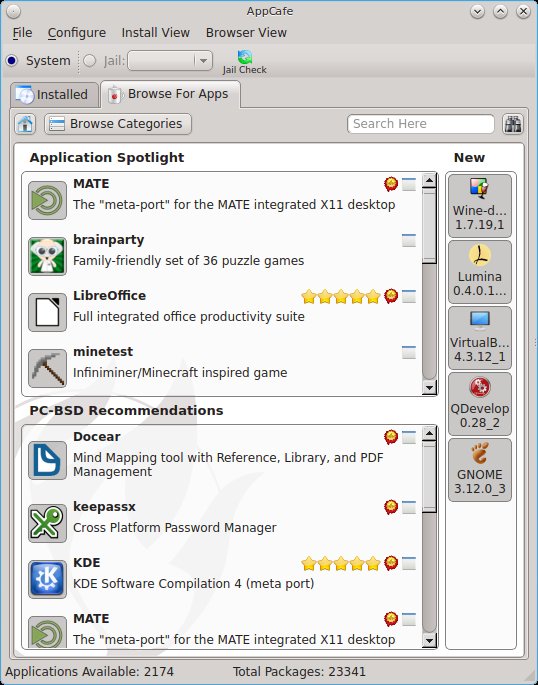
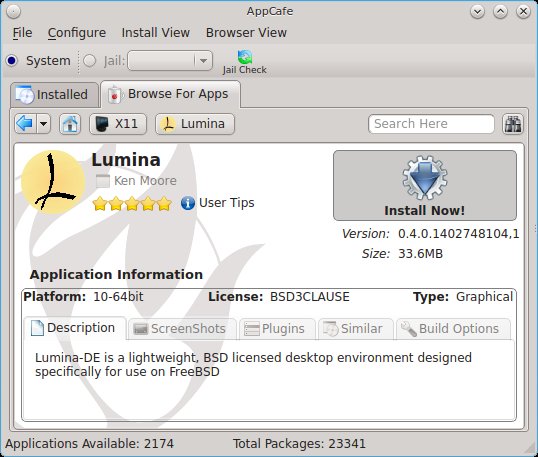
First impressions
The new desktop comes with a very thin 22px top panel, which does not really shine on large screens. Other than that, there's little else to differentiate this desktop from many other lightweight offerings. Remember my Razor-qt experiment, and more recently, the LXQt review on Netrunner? It's the same thing here.
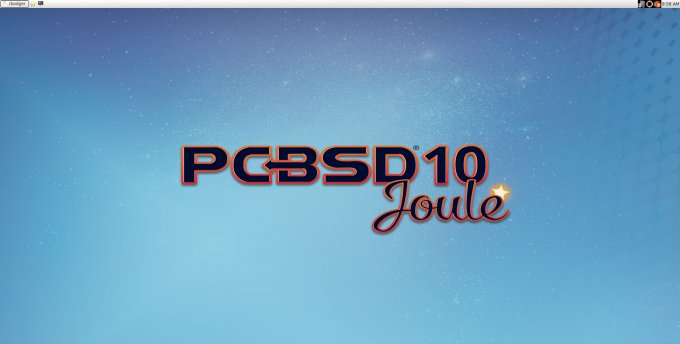
By same thing, I actually mean that the environment does not come with the coherent, easily recognizable theme that makes it unique and distinct, the domain of the larger solutions like Gnome, KDE, Unity, Xfce, and Cinnamon. You have elements that do not align visually in any way, and this is really annoying to someone like me.
The menu is very old-style, it comes with no search, and it features no applications whatsoever. Well, it does, but none of the KDE stuff. This makes the system somewhat useless. Then, you have Favorites, as a separate button, and a black block of system tray icons, which do not include volume, network or other useful applets. Why? Alpha, I know.
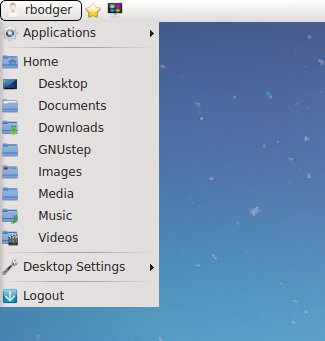

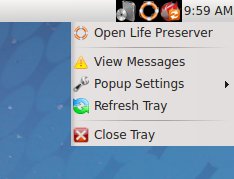
Settings
Customization is also very basic. You can tweak the desktop background and screensaver, change the size and position of the panel, which makes it only slightly more appealing, even though the icons do not scale with the vertical dimension, and truly, little else besides, at this point. Yes, it is alpha.
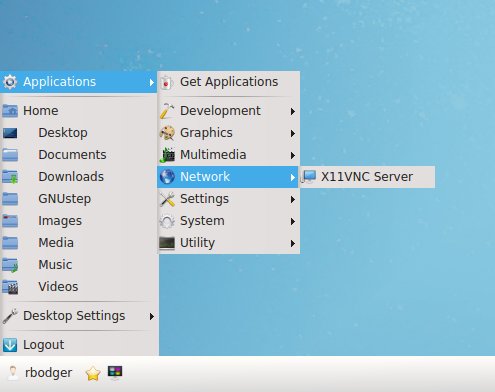
But at the same time, it feels no different, no better, no more unique than all of the lightweight desktop frameworks, all of which make Windows 95 look like Porsche, and all of which suffer from the same incoherent design. Fluxbox, Openbox, Fvwm, Razor, LXQt, and the rest, none of them really cuts it. Sorry to be so blunt, but a big and crucial part of the desktop experience is having a somewhat pleasing system to work with, not just the bare minimum that you can tailor using Tcl, Qt or whatever other language you choose.
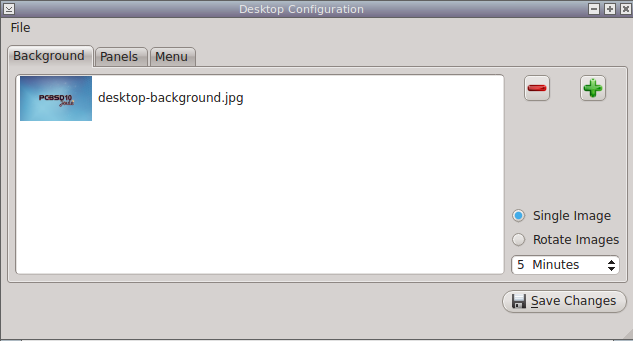
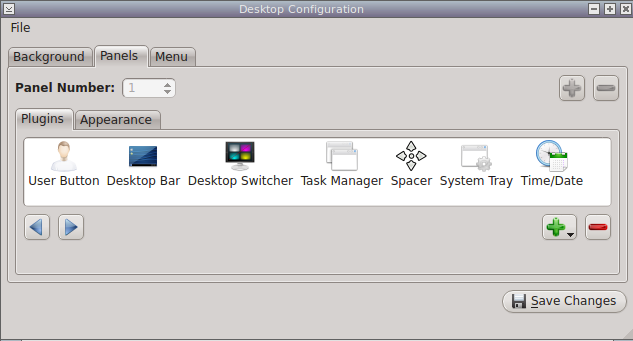
Eventually, you can tweak it a bit, but it's an effort.
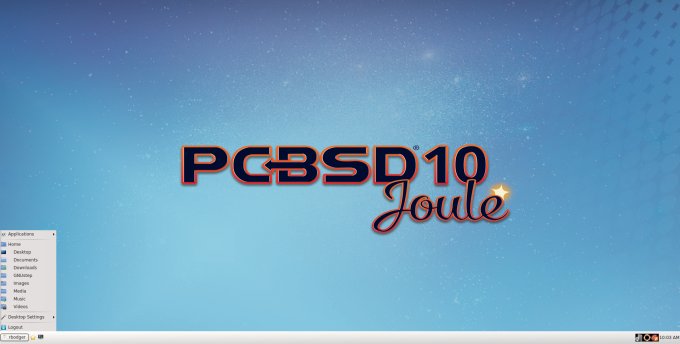
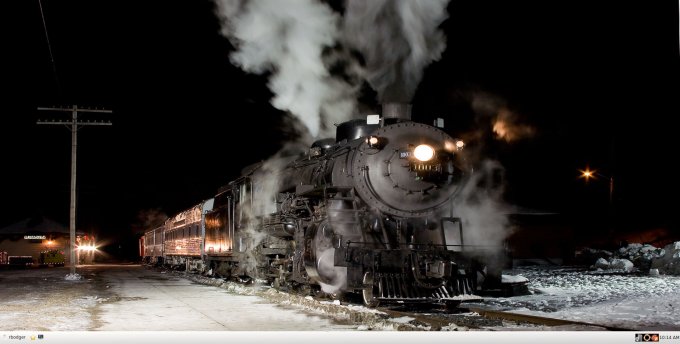
However, in the end, you are left with a lightweight desktop that really serve no purpose. Sure, all this may change, and I hope it will. But for the moment, it gives you a different panel, with less functionality than KDE, a different menu, with less functionality than KDE, no access to KDE programs, and no ability to tweak and tame the system as you would like. I guess that's fine for an alpha release. Maybe.
Conclusion
The more I test different desktop environments, the more I understand why I have an almost natural aversion to those super-old looking products. They are simply ugly and not inviting and even feel technologically inferior, even though they might not be. But this is particularly jarring when brand new programs are designed with the 1997 mentality.
I do want these new projects to succeed. But they all fail the same test. They do not try to figure out how to make existing products better, they just seek to be light for some weird reason, and they end up being ugly and pointless. That's not the way. If you want to beat Unity or KDE or Cinnamon, first match their consistency and beauty, and then work on the slimming part. Not the other way around. And if you're going for ancient looks that have no unifying character, then nothing good will come out of this, I'm afraid. So, for the time being, I'm skeptical about Lumina. No illumination here. I want to see it flourish, but I'm not optimistic.
Cheers.